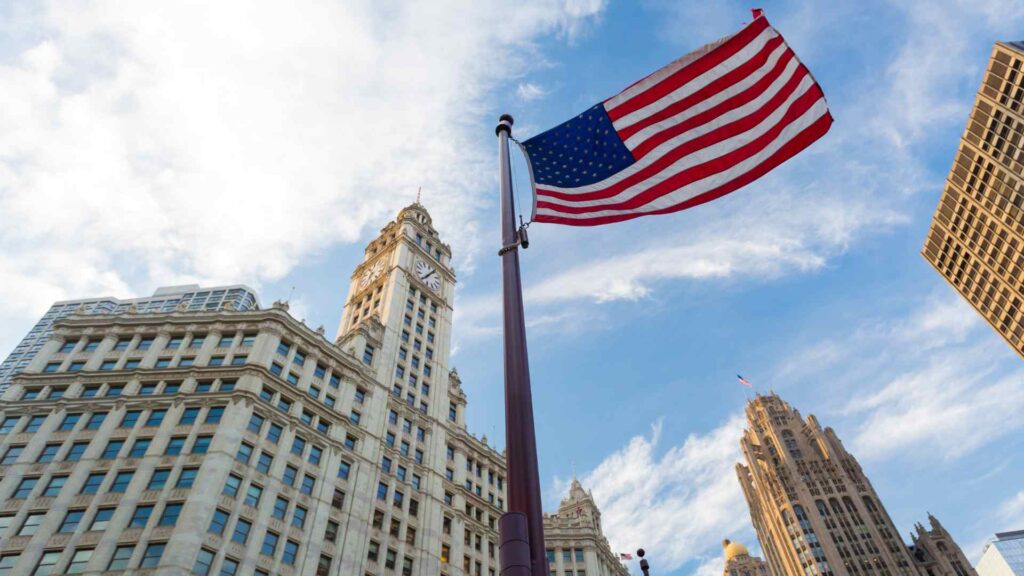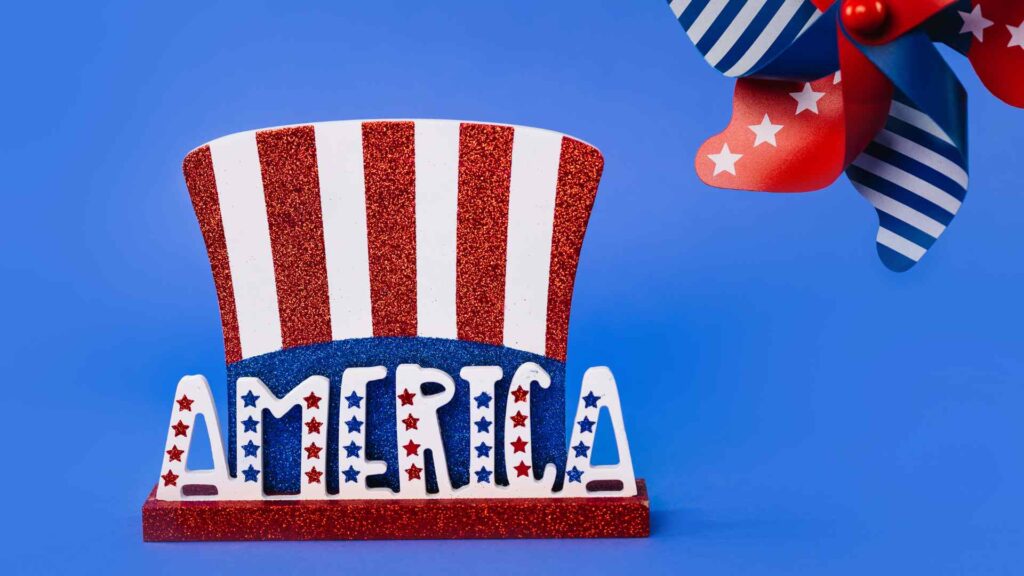Donald Trump has been a central figure in modern politics, and with his rise came a plethora of nicknames from supporters, critics, and media alike.
These nicknames reveal much about public perception, political strategies, and cultural commentary surrounding Trump. Let’s dive into their backgrounds, meanings, and significance.
The Power of Nicknames in Politics
Nicknames have long been a political tool used to frame narratives, create images, and undermine opponents.
Historically, U.S. politics has seen figures like Abraham Lincoln dubbed “Honest Abe” and Andrew Jackson as “Old Hickory.”
Donald Trump’s era, however, has amplified this practice, using nicknames as a strategic weapon to either elevate his persona or discredit his rivals.
Nicknames allow political figures to:
- Establish dominance by controlling how they and others are perceived.
- Condense complex ideas or criticisms into catchy, easily repeated phrases.
- Create loyalty and a sense of identity among their base.
In Trump’s case, he has mastered the art of nicknames, making them a fundamental aspect of his branding strategy.

Trump’s Self-Given Nicknames
Trump, understanding the power of branding, has often given himself nicknames that bolster his image. These self-given titles project confidence, strength, and superiority.
The Donald
- Background: This nickname has origins in the 1980s when Trump’s then-wife, Ivana Trump, would refer to him as “The Donald” due to his larger-than-life personality.
- Meaning: It suggests a persona of grandeur and importance, almost a brand unto itself.
- Importance: It’s become synonymous with Trump’s self-promotion style, embodying his tendency to project himself as a singular, powerful figure.
The Stable Genius
- Background: This nickname emerged from Trump’s tweet defending his intelligence after critics questioned his mental fitness.
- Meaning: By calling himself a “Stable Genius,” Trump attempted to mock critics while presenting himself as competent and intellectually formidable.
- Importance: This self-title became a source of both support and ridicule, with critics turning it into a meme, showcasing how self-promotion can backfire.
Nicknames Given by Supporters
Supporters of Donald Trump have created affectionate and supportive nicknames that amplify their admiration for him.
Teflon Don
- Background: Originating from Trump’s ability to evade scandals that would normally destroy political careers, the nickname draws a parallel with mobster John Gotti, who was called “Teflon Don” for similar reasons.
- Meaning: It highlights Trump’s perceived resilience and his supporters’ belief in his imperviousness to criticism.
- Importance: This nickname reinforces the idea that Trump is a fighter who withstands any attack, endearing him further to his base.
God Emperor Trump
- Background: A nickname that started as a meme within the alt-right and 4chan communities, it exaggerates Trump’s importance in a humorous, almost mythical manner.
- Meaning: It symbolizes an exaggerated reverence, portraying Trump as a savior figure.
- Importance: The meme became a cultural touchpoint, signaling loyalty and fervent admiration among Trump’s most devout followers.

Nicknames from Critics and Opponents
Critics have coined a plethora of nicknames, using humor, satire, and sharp criticism to undermine Trump’s image.
Cheeto-in-Chief
- Background: This nickname pokes fun at Trump’s distinct orange-tinted complexion, drawing comparisons to the snack Cheetos.
- Meaning: It serves as a playful insult that diminishes his image, focusing on his appearance rather than his policies.
- Importance: It’s a reminder of how aesthetics can be used as political commentary, and it became a rallying cry among his detractors.
Orange Julius Caesar
- Background: This is a clever play combining Trump’s orange complexion with the tyrannical image of the Roman dictator Julius Caesar.
- Meaning: It suggests that Trump is both power-hungry and a bit ridiculous.
- Importance: By combining historical allusion with humor, it provides a critique of Trump’s perceived authoritarian tendencies.
Media-Created Nicknames
The media also played a significant role in shaping Trump’s image through the use of nicknames.
The Divider-in-Chief
- Background: Media outlets coined this term due to Trump’s controversial rhetoric and divisive policies.
- Meaning: It criticizes Trump’s approach to leadership, suggesting that he intentionally fosters division rather than unity.
- Importance: This nickname reflects the media’s framing of Trump as a polarizing figure.
The Reality Show President
- Background: Stemming from Trump’s time as host of “The Apprentice,” this nickname underscores how his presidency mirrored reality TV drama.
- Meaning: It points out Trump’s tendency to prioritize entertainment and spectacle over substance.
- Importance: This label emphasizes the shift in political norms during Trump’s presidency, where sensationalism became a primary tool.
Cultural Impact of Trump’s Nicknames
Trump’s nicknames have permeated various facets of culture:
- Memes and Internet Culture: Many nicknames, like “Covfefe King,” have sparked viral internet moments.
- Late-Night TV: Shows like “Saturday Night Live” and “The Daily Show” have used nicknames to satirize Trump, further embedding them in popular culture.

Most Popular Trump Nicknames Explained
The Former Guy
- Background: This nickname gained popularity when President Joe Biden and others avoided using Trump’s name directly, opting instead for “The Former Guy.”
- Meaning: It serves to downplay Trump’s significance by reducing his identity to a generic title.
- Importance: It represents an attempt to shift focus away from Trump, symbolizing the desire for a post-Trump era.
Don the Con
- Background: Critics created this to highlight Trump’s history of bankruptcy and alleged fraudulent practices in business.
- Meaning: It paints Trump as a manipulative figure, using alliteration for effect.
- Importance: This nickname taps into the narrative of Trump’s untrustworthiness, aiming to erode his credibility.
Trump’s Responses to His Nicknames
Trump often responds to nicknames with counter-attacks, using his platform to spin narratives or ridicule his opponents. This tactic shows his resilience but also highlights his obsession with image control.
Nicknames of Other Political Figures by Trump
Trump has branded many of his opponents with memorable nicknames:
- Crooked Hillary: Designed to paint Hillary Clinton as corrupt.
- Sleepy Joe: Aimed at portraying Joe Biden as slow and incompetent.
These nicknames have become key tools in his political strategy, creating simplified narratives that stick with his audience.
How Nicknames Have Impacted Trump’s Brand
Trump’s use of nicknames has created a polarizing brand that thrives on simplicity, repetition, and controversy. This branding has made him a uniquely influential figure in modern politics, showing that nicknames are far from trivial; they’re powerful messaging tools.
The Double-Edged Sword of Nicknames
While Trump’s nickname strategy has rallied supporters, it has also alienated moderates and critics. The reliance on derogatory nicknames can undermine broader appeal and damage relationships, highlighting the risks associated with such a branding strategy.
Global Perspective on Trump’s Nicknames
Internationally, Trump has earned nicknames from foreign leaders and media that reflect various perceptions, from admiration to disdain. These names range from the playful to the critical, mirroring global reactions to his presidency.
Trump’s Nicknames on Social Media
Social media has been a breeding ground for Trump’s nicknames, with platforms like Twitter amplifying both support and criticism. These nicknames often become hashtags, shaping public discourse and going viral.
Evolution of Nicknames Over Trump’s Career
From his early days as a businessman to his time as president, Trump’s nicknames have evolved:
- The Artful Deal-Maker: During his business career.
- The MAGA King: Reflecting his political dominance.
Each phase of his career shows how branding has been central to Trump’s public persona.
Why Nicknames Will Remain Part of Trump’s Legacy
Nicknames have undeniably shaped Trump’s legacy. Whether remembered as humorous or divisive, they are part of the larger narrative that will define Trump’s place in history. The cultural impact and political relevance of these nicknames ensure they will remain subjects of discussion long after his time in office.
Frequently Asked Questions (FAQs)
What is Donald Trump’s most famous self-given nickname? Trump’s most famous self-given nickname is likely “The Stable Genius,” which he used to defend his intelligence against critics.
Why do critics use nicknames like “Cheeto-in-Chief” for Trump? Critics use such nicknames to satirize Trump’s appearance and diminish his authority through humor and ridicule.
How do Trump’s supporters view his nicknames? Supporters often view Trump’s nicknames as a sign of his confidence, resilience, and authenticity, seeing them as playful rather than harmful.
What is “The Former Guy” nickname about? “The Former Guy” was used by Biden and others to shift focus away from Trump, emphasizing the transition to a new administration.
How has social media influenced Trump’s nicknames? Social media amplifies Trump’s nicknames, turning them into viral memes and making them central to public conversations.
Will nicknames remain part of Trump’s political legacy? Yes, Trump’s use of and reaction to nicknames have become central to his public image, ensuring they will be part of his historical legacy.
